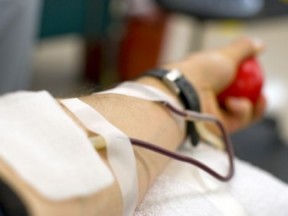I was idling away a lazy winter afternoon at office, about nine years ago, when I got a frantic call from a friend. Her youngest sister’s husband had been diagnosed with dengue. There was reason to be worried.
They needed blood, latest by nightfall. There was only this one sure-shot place in Delhi where you could get the blood you wanted, even if it wasn’t available elsewhere in town. We had to act, fast.
I rushed out of my Kasturba Gandhi Road office and picked up my friend. We made for this locality in North Delhi, a part of the city neither of us had any clue about. On the way we had to stop at an ATM to withdraw the obviously-needed cash. Those days there were fewer ATMs per square kilometre.
But we got our money and managed to find our way to this shabby medical facility up North. I can’t for the life of me remember now whether this was a blood bank or a hospital. Nevertheless, we got the blood, and headed for the Dwarka hospital where this brother-in-law was admitted.
We made it in time and with the blood that we had brought, he crawled slowly out of danger. His platelet count gradually rose, and the teary-eyed family thanked God.
Days passed by, and the fully recovered gentleman and his wife, both doctors, had two delightful children, and carried on with life. The dengue incident soon became medical history. People of course need to move on, and the past must always be the past. Selective amnesia, particularly, can be blissful.
I had no reason to remember the incident either. But I did, many winters later. I happened to be, as I was convincingly led to believe, an unwelcome visitor at their house. An ogre, an outsider.
This, however, was not a lazy winter afternoon. It was frightfully cold. It was six in the morning, and it was drizzling. Not a very reassuring situation if you needed to venture out, especially in a place like Delhi.
All the gentleman needed to do was to drop me at the nearest auto/taxi stand. But he rebuffed my request, and grumbling away, returned to bed. It was not a long walk, but it was sufficient to get me drenched. The 40 km drive to my home in Vasundhara Enclave in the virtually open-air auto did not exactly dry my clothes. I fell ill and remained out of action for more than a week.
And I remembered. This was the same man for whom I had driven all around the city. For the blood that eventually saved his life.
I again had no reason to keep remembering the dengue incident – till the other day, when a friend’s friend needed six units of blood for a surgery. There was some confusion over donors and blood banks, but that’s only academic to this piece. I messaged all who I could think of, including the doctor couple. They would have known where and how to get the blood. But they didn’t come to my help. Leave alone help, they did not even acknowledge my messages. Yes, the same husband and wife pair, whose future was saved because the much-needed blood had reached them well in time.
I don’t regret running around for them nine winters back. How can I? And I can’t wish them ill today, for I can’t. I only wish that I did not need to remember them even in retrospect.
PS: The family that needed the six units, finally managed to get the blood.
Subir Ghosh is a New Delhi-based independent journalist and writer. He has worked with the Press Trust of India (PTI) and The Telegraph, and handled publications/communications for the Centre for Science and Environment (CSE), the Federation of Hotels and Restaurant Associations of India (FHRAI), and the Wildlife Trust of India (WTI). He specialises in Northeast affairs and is an advisory council member with the Centre for Northeast Studies (C-NES). He is the author of ‘Frontier Travails: Northeast – The Politics of a Mess’ published by Macmillan India, and has won two national awards in children’s fiction. His subjects of interest include conflict, ethnicities, wildlife, human rights, poverty, media, and cinema. He blogs at www.write2kill.in







A 4-year-old child belonging to a middle-class family was orphaned. The father had abandoned the family long ago. When the mother died, no relatives came forward to take the child. One of the reasons being- it was a girl child. A rag picker and his wife adopted the child. She is being raised along with their children as one of their own. When asked, why they did it, the wife said: “I was an orphan. I know the pain of orphanhood.”
I have just come visiting the family. And for the nth time I have realised that there is more gratitude among the poor than the rich.
i want to say go punch doctor couple, but that would be considered very unladylike and all that.
but, as i have often been told, nothing very ladylike about me.
so, go punch doctor couple.
ingrates.
people taking neki kar, dariya mein daal too seriously.